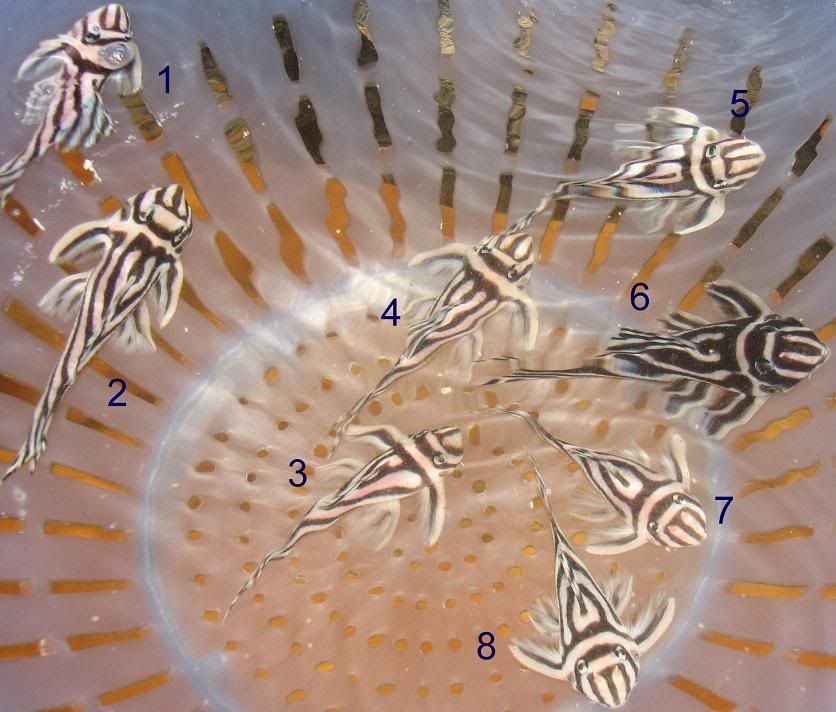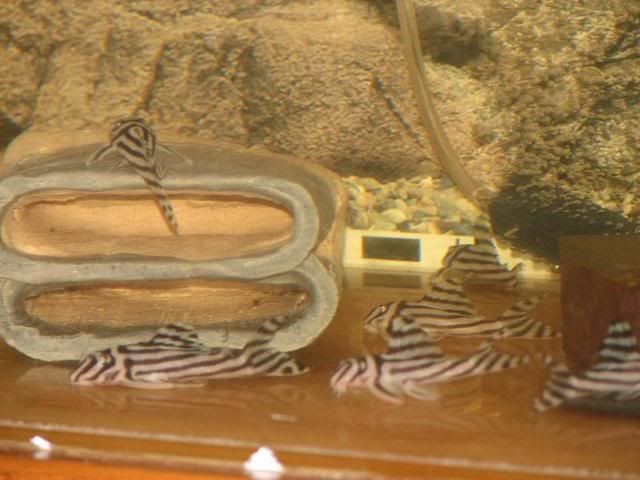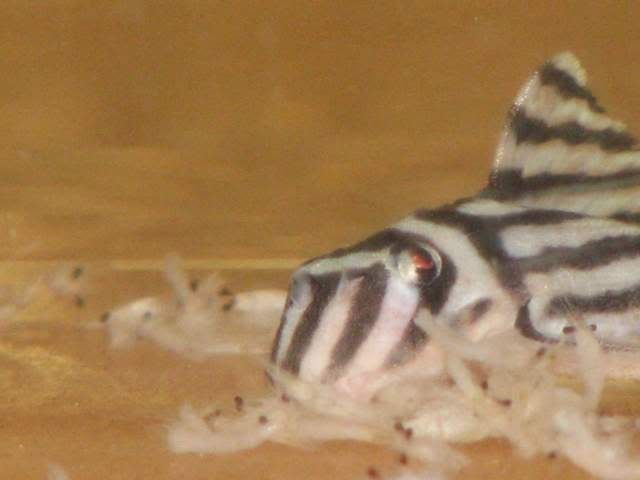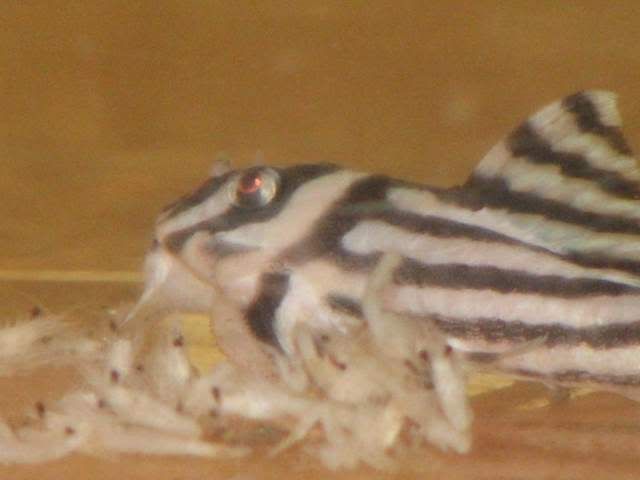New here and kinda new with zebras too. Got eight zebras and have no clues what their genders are. Please help and I will appreciate your expertise and input regarding their sexes.
Here they are!!!
Thanks a lot!!!!!
 [/img]
[/img] [/img]
[/img]Code: Select all
[img]http://www.somewhere.com/imagename.jpg[/img]

 [/img]
[/img]Mindy wrote:If they're old enough to sex, there are a few things you can look for. Like everyone else, I'm having trouble seeing through the ripples...
Different people have their own specific thing that helps them identify sexes - here are a few of them. Viewed from the side, the males face often slopes more gradually down to the nose, where the female is a bit of a sharper slope.
Shape of the pectoral fin - the females tend to be a bit more rounded (and the males get more odontodal growth).
Cheek odontodes - generally speaking the males "whiskers" will keep going past the eye (moreso in the alpha male)... but sometimes you can get some hairy ladies too!
Body shape - observe the space between front and back set of fins. The bodies taper from their head to the tail. If the body starts to taper from behind the pectoral fins, that usually indicates a male. But a female will stay quite plump between the two sets of fins and start to taper after the second set of fins. But like most indicators, this is something that only really shows properly when they're mature.
Good luck!